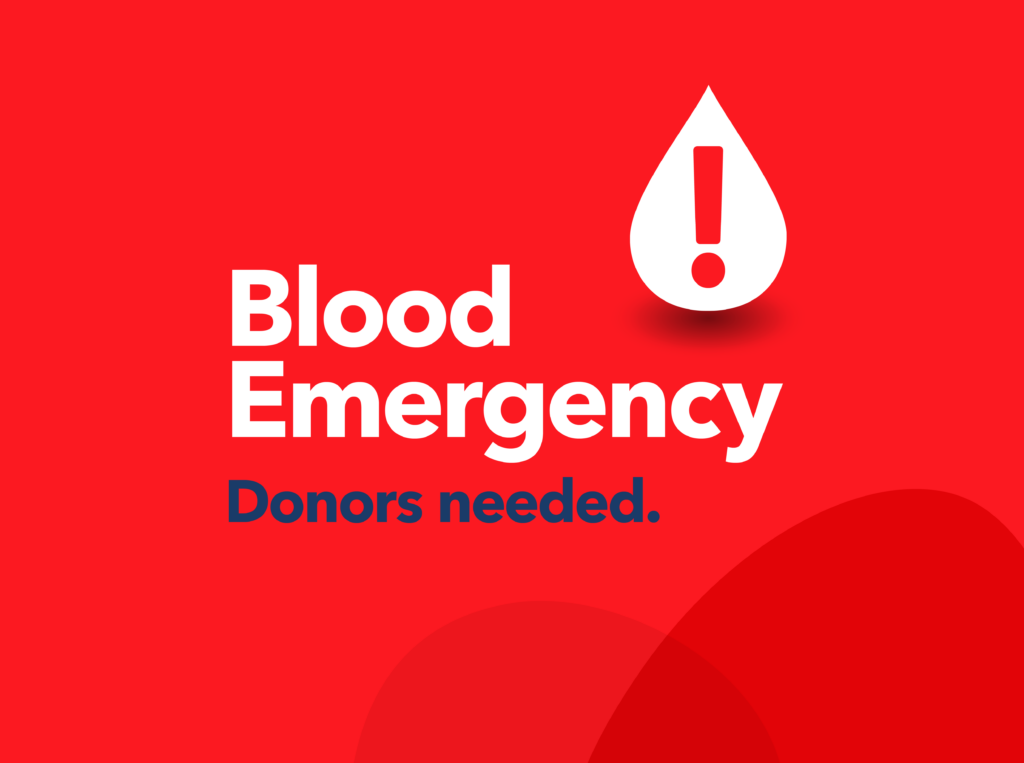All blood types needed as blood supply drops below 2-day inventory;
O-negative and O-positive critically low

RHODE ISLAND – Rhode Island Blood Center (RIBC)has declared a blood emergency in Rhode Island as the state’s blood supply drops below a 2-day inventory, far below the 7-day supply needed to meet hospital and patient needs. While all blood types are urgently needed, the shortage is especially severe for types O-negative and O-positive, which are vital for emergency situations and trauma care.
“We urgently need the community’s help to rebuild the blood supply and prevent this situation from becoming more dire,” said Nicole Pineault, Executive Director of Blood Operations at Rhode Island Blood Center. “Donating blood is one of the most direct and impactful ways to support our healthcare system and save lives.”
Summer has brought an expected decline in donations, driven by vacations and school breaks, but combined with increased trauma cases, the impact on the local blood supply has been severe. “Every time you hear a siren or see a helicopter overhead, there’s a chance that patient will need blood,” said Pineault. “We need to make sure it’s on the shelves before they ever get to the hospital.”
Rhode Island’s hospitals aren’t alone in this crisis. Blood shortages are a growing concern nationwide. But the solution is local – and immediate. RIBC is calling on community members to step up now and ensure blood is available for those who need it.
Dr. Stephanie Lueckel, Chief of Trauma at Rhode Island Hospital, emphasized the urgency:“As a trauma surgeon, I see a lot of blood. I also transfuse a lot of blood. So I know firsthand how a single blood donation can make a huge difference. Whether it’s a car accident, a complicated surgery, or a patient with severe anemia, donated blood saves lives every day. Giving blood is one of the simplest yet most powerful ways to help others in critical need.”
State health leaders are also urging residents to take action, highlighting the essential role of blood donors in maintaining the state’s healthcare infrastructure.
“When you donate blood, you are helping women and newborns during complications with childbirth, people battling blood cancer or undergoing chemotherapy, people who suffered trauma in an accident or disaster, or even people needing surgeries and organ transplants,” said Jerry Larkin, MD, Director of the Rhode Island Department of Health. “In Rhode Island alone, someone needs a blood transfusion every two seconds. Making an appointment to donate blood is as easy as scheduling a doctor’s appointment. If you can donate, please call the Rhode Island Blood Center today.”
How You Can Help:
- Donate now. Schedule a blood or platelet donation at www.ribc.org or call 401.453.8383.
- Host a drive. Start one at your school, business, or place of worship. Learn more here.
- Spread the word. Invite a friend to donate with you and share this urgent message.
In light of recent updates to FDA guidance, more people than ever may now be eligible to give. Blood donors can donate every 56 days, and platelet donors can give up to twice per month. To view current eligibility guidelines or make an appointment, visit www.ribc.org or call 401.453.8383.
About Rhode Island Blood Center
Founded in 1979, Rhode Island Blood Center (RIBC) has served Rhode Island and the New England area for more than 45 years, delivering more than 90,000 lifesaving blood products annually to 50+ hospitals, EMS and healthcare partners. RIBC is part of New York Blood Center Enterprises (NYBCe), which spans 17+ states and delivers one million blood products to 400+ U.S. hospitals annually. NYBCe additionally delivers cellular therapies, specialty pharmacy, and medical services to 200+ research, academic and biomedical organizations. NYBCe’s Lindsley F. Kimball Research Institute is a leader in hematology and transfusion medicine research, dedicated to the study, prevention, treatment and cure of bloodborne and blood-related diseases. RIBC serves as a vital community lifeline dedicated to helping patients and advancing global public health. To learn more, visit www.ribc.org. Connect with us on Facebook, X, Instagram, and LinkedIn.
